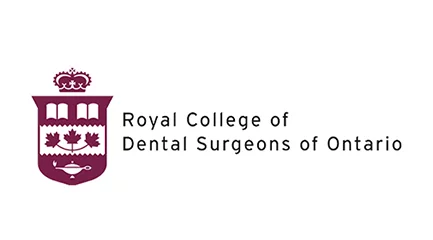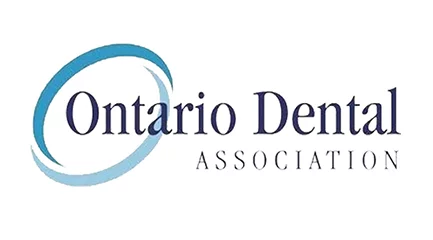PERIODONTAL (GUM) DISEASE
Periodontal disease, also known as gum disease, usually occurs due to bacterial growth in the mouth. If left untreated in its early stages, it can eventually lead to tooth loss or the destruction of oral tissues surrounding the gums and teeth.
Several factors can contribute to periodontal disease, including:
- Poor oral hygiene
- Smoking or tobacco use
- Bacterial buildup on tooth surfaces
- Stress
- Diabetes
- Crooked or misaligned teeth
If you’re experiencing any form of gum disease, it’s important to see a dentist as soon as possible to prevent serious complications. Untreated gum disease can lead to infections or inflammation that spread to other oral structures, damaging their function.
There are several types of periodontal disease that are common today, but you can prevent most of them by taking simple steps—such as brushing and flossing your teeth twice a day, avoiding sugary foods, and visiting your dentist regularly for thorough dental exams and cleanings.
Contact our office at (519) 485-4951 today, or book an appointment
SYMPTOMS OF PERIODONTAL DISEASES
There are several symptoms that may indicate you’re experiencing periodontal disease, including:
- Bleeding gums while brushing or flossing
- Bad breath
- Loose or misaligned teeth
- Receding gums
- Red, swollen, or tender gums
- Tartar or calculus buildup on the teeth
- Occasional or persistent pain while chewing
- Tooth loss
- A foul taste in the mouth
- Inflammation throughout the body
It’s important to treat periodontal disease in its early stages, when symptoms are mild. If left untreated, it can spread to adjacent teeth and lead to serious dental issues, including tooth and bone loss.
At Ingersoll Dental, we offer high-quality dental care at affordable rates—often covered by dental insurance. We understand the importance of good oral health and its connection to overall well-being. Our team provides effective, personalized treatments to help patients maintain healthy, confident smiles for life.
If you’re looking to resolve any dental concerns, Ingersoll Dental may be the ideal solution. Contact us today to have your oral health evaluated by our experienced and professional dentists—and enjoy a free consultation at our clinic.
STAGES OF PERIODONTAL DISEASES
Gum, or periodontal, disease is generally classified into four stages, ranging from mild to severe symptoms. It should be detected in its early stages, when symptoms are minimal. Otherwise, it can become difficult—or even impossible—to treat effectively.
1. GINGIVITIS (INFLAMMATION)
Gingivitis is the earliest stage of periodontal disease. Common symptoms include bleeding gums while brushing, and swollen, puffy, or dark-colored gums. Gingivitis is treatable and can usually be reversed through professional dental cleanings and consistent oral hygiene practices.
If you’re experiencing gum inflammation or gingivitis, you should also avoid consuming sugary or starchy foods. These types of food contribute to plaque buildup on the tooth surface and can damage your teeth over time.
2. EARLY PERIODONTAL DISEASE
If gum inflammation is not managed early, it can progress into the initial stage of periodontal disease. At this stage, the gums typically begin to recede or pull away from the teeth, creating small gaps. These gaps can harbor bacterial growth, leading to more serious complications.
In early periodontal disease, patients may experience symptoms such as mild pain while chewing, bleeding gums during brushing or flossing, and early signs of bone loss.
3. MODERATE PERIODONTAL DISEASE
Moderate periodontal disease is the third stage of gum inflammation and is characterized by deeper probing depths. At this stage, cavities and bacteria can begin to affect the bone, and in some cases, bacteria may enter the bloodstream, leading to serious oral and systemic health complications. This stage is typically treated with deep professional dental cleanings.
Dentists also perform a procedure called scaling, which smooths the surface of the tooth roots to prevent bacterial accumulation and reattachment in the pocketed areas, reducing the risk of reinfection. However, studies show that moderate periodontal disease is not reversible, but its progression can be slowed with proper treatment.
4. ADVANCED PERIODONTAL DISEASE (PERIODONTITIS)
Advanced periodontal disease is a serious infection that destroys the soft tissues surrounding the gums and teeth. As a result, the connective tissues that hold your teeth in place begin to deteriorate, leading to tooth and bone loss.
In advanced periodontitis, individuals commonly experience symptoms such as severe pain while chewing, abscesses, receding or bleeding gums, bad breath, and a foul taste in the mouth. Treating advanced periodontal disease often requires dental surgery.
The primary goal of dental surgery is to thoroughly clean the pockets around the teeth to prevent further bone damage. Surgical treatment for periodontitis typically involves three steps: scaling, root planing, and the application of topical antibiotics.
If advanced periodontal disease is not properly treated, it can result in tooth loss and significant damage to surrounding oral structures.










